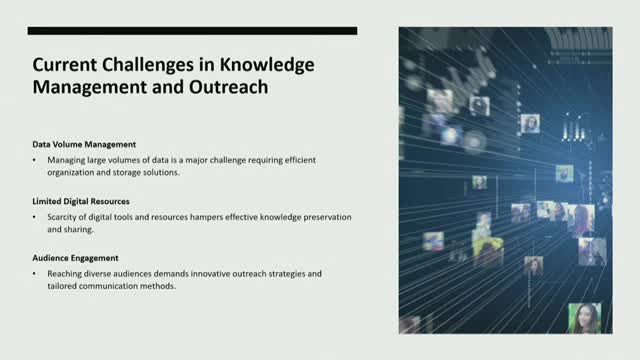Historian discusses generative AI's impact on research and public engagement
July 10, 2025 | Flower Mound, Denton County, Texas
This article was created by AI summarizing key points discussed. AI makes mistakes, so for full details and context, please refer to the video of the full meeting. Please report any errors so we can fix them. Report an error »

In a lively meeting held on July 10, 2025, the Flower Mound Historical Commission explored the transformative impact of technology on historical research and public engagement. As members gathered in the city hall, discussions centered around the challenges and opportunities presented by digital resources, particularly the integration of generative artificial intelligence (AI) in preserving and sharing local history.
The conversation began with a focus on the limitations of traditional archival methods, which often required physical visits to libraries and cumbersome cataloging processes. Members reminisced about the days of microfiche and card catalogs, highlighting how the advent of search engines like Google revolutionized access to information. "The library is now in the cloud," one member noted, emphasizing the shift towards digital archives that allow for easier retrieval of historical data.
As the meeting progressed, the potential of generative AI emerged as a key topic. This technology, capable of creating human-like content and analyzing large datasets, was presented as a powerful tool for historians. Members discussed how AI could assist in reconstructing narratives, summarizing lengthy documents, and even translating historical texts. The ability to contextualize information and provide richer insights was seen as a game-changer for research and education.
One member illustrated the practical applications of generative AI by demonstrating how it could generate engaging content for social media or educational materials. "Imagine creating quizzes about the Gibson Grant House for local students," they suggested, highlighting the potential for interactive learning experiences. The idea of using AI to simulate historical conversations, bringing figures from the past to life, sparked excitement among the commission members.
The meeting also touched on the importance of preserving digital records and making them accessible to the public. Discussions included strategies for cataloging artifacts and utilizing AI to assist in grant writing for historical projects. The commission recognized that as technology evolves, so too must their approaches to education and community engagement.
As the meeting drew to a close, members expressed enthusiasm for the future of historical research in Flower Mound. With the integration of digital tools and AI, they envisioned a vibrant landscape where history is not only preserved but also made accessible and engaging for all. The commission's commitment to embracing these advancements promises to enrich the community's understanding of its heritage, ensuring that the stories of Flower Mound continue to be told for generations to come.
The conversation began with a focus on the limitations of traditional archival methods, which often required physical visits to libraries and cumbersome cataloging processes. Members reminisced about the days of microfiche and card catalogs, highlighting how the advent of search engines like Google revolutionized access to information. "The library is now in the cloud," one member noted, emphasizing the shift towards digital archives that allow for easier retrieval of historical data.
As the meeting progressed, the potential of generative AI emerged as a key topic. This technology, capable of creating human-like content and analyzing large datasets, was presented as a powerful tool for historians. Members discussed how AI could assist in reconstructing narratives, summarizing lengthy documents, and even translating historical texts. The ability to contextualize information and provide richer insights was seen as a game-changer for research and education.
One member illustrated the practical applications of generative AI by demonstrating how it could generate engaging content for social media or educational materials. "Imagine creating quizzes about the Gibson Grant House for local students," they suggested, highlighting the potential for interactive learning experiences. The idea of using AI to simulate historical conversations, bringing figures from the past to life, sparked excitement among the commission members.
The meeting also touched on the importance of preserving digital records and making them accessible to the public. Discussions included strategies for cataloging artifacts and utilizing AI to assist in grant writing for historical projects. The commission recognized that as technology evolves, so too must their approaches to education and community engagement.
As the meeting drew to a close, members expressed enthusiasm for the future of historical research in Flower Mound. With the integration of digital tools and AI, they envisioned a vibrant landscape where history is not only preserved but also made accessible and engaging for all. The commission's commitment to embracing these advancements promises to enrich the community's understanding of its heritage, ensuring that the stories of Flower Mound continue to be told for generations to come.
View full meeting
This article is based on a recent meeting—watch the full video and explore the complete transcript for deeper insights into the discussion.
View full meeting
